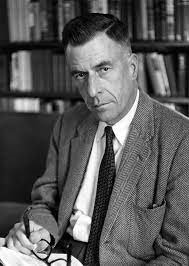A Q&A with Stephen Saint Leger, Managing Director, JIMCO Strategic Asset Fund
The Jameel Family have been actively investing in emerging ideas and businesses for almost five decades, from Atari in the early 1980s to mobility innovators RIVIAN and Joby Aviation more recently. The Family’s non-operations investment activities have been consolidated into a new, dedicated investment brand: Abdul Latif Jameel Investment Management Company, or JIMCO.
JIMCO is separate from both the Abdul Latif Jameel commercial business operations and the Jameel philanthropies, which include Bab Rizq Jameel, Community Jameel Saudi, Art Jameel and Community Jameel.
With a global reach from the Americas to Asia Pacific, it comprises three funds verticals each with a different focus: Life Sciences, Technology and Strategic Asset investments. Together, these are the core Family investment vehicles in innovation, early-stage ventures and emerging technologies, with the aim of advancing the future of core industries, driving the global economy and contributing towards a more inclusive society.
JIMCO has quickly made its presence felt in its chosen markets. The Life Sciences fund has made a number of landmark investments in breakthrough biotech pioneers that have the potential to change the face of medicine across the world, including Cellarity, Evelo Biosciences and Laronde. The Strategic Asset fund continues to pursue responsible investment opportunities that back promising, forward-thinking fund managers with clear, sustainable and long-term visions.
And the JIMCO Technology Fund is investing in various exciting technologies with the potential to disrupt traditional ways of working, including Speero, Lean and Rain.

We caught up with Stephen Saint Leger, Managing Director, JIMCO Strategic Asset Fund, about the background to JIMCO, his vision for the fund and his hopes for the future.
Q: Can you outline the Jameel Family’s investment philosophy?
The Jameel family’s investment philosophy can be defined in three ways. Firstly, they are truly investors for the long term, and they’ve demonstrated that in many ways, not only in the original business but also in other businesses that they have moved into since the beginning over 75 years ago. Second, there is a strong intent to add meaningful value to an investment. And third, to do good and invest in a socially responsible fashion that ultimately benefits society.
Q: You’ve been in the investment industry for many years. How are family investment funds different to other types of investment funds?
Families come in all shapes and sizes, so there’s much more divergence of approach in the family investment world than there is, say, in the institutional world such as pension funds or banks, which, by their very nature, tend to have very similar objectives and constraints. Families are the most disparate group, I would say, in terms of both their structures and their objectives.
Q: You joined the business in 2017. What attracted you to the opportunity?
I started off working for a bank in the City of London, which was where I gained my first experience in the investment business. To me, it was like a fascinating jigsaw puzzle that keeps undoing itself and you have to put it back together again. I then spent a few years as a trader for Morgan Grenfell, before moving back into investment management. I came to the Gulf in the late 1990s to run the investment portfolio for Riyad Bank. That was my first experience of running fund-based portfolios.
After a few years doing that, I was approached by an investment consultancy called Cambridge Associates to head up their research in London. My remit was Europe and the Middle East, so I was able to keep in touch with what was happening in the investment world in this region. I moved over to the client side in around 2010/2011 and built up a portfolio of clients that I advised on their investment portfolios. It was a very eclectic mix, some UK families and institutions, overseas families, including one of the largest family offices in France, and overseas institutions too, such as City of Zurich Pension Fund.
It was at Cambridge Associates that I first met Mohammed Jameel. We worked with him on the Jameel Family Office investment portfolio: advising on strategic asset allocation and selecting and recommending funds for inclusion in that strategic asset allocation, then monitoring the portfolio and reporting on it. A few years later, we took it a step further, and I helped to devise a strategic asset allocation strategy, which became the Strategic Asset Fund. After we’d finished, I was invited to come back to Dubai to head up the fund and put the plan into action.
Q: In a nutshell, what are the investment objectives of the Strategic Asset Fund?
It has a clearly stated objective: to provide a long-term relatively stable return subject to certain risk constraints. This means it should not fluctuate more than a certain percentage in any calendar year, and – very importantly – that it should put this strategy into practice in a socially responsible fashion.
Since JIMCO has come into existence, and other portfolios within JIMCO, there is an additional objective which is to cooperate with the other portfolios in JIMCO, exchange ideas, and help out with their missions as well.
It’s this power of private capital to make a positive difference on the world that JIMCO is really about.
Q: Is there a particular geographic scope you focus on, or particular sectors or investment themes?
Not really. Our scope is global and covers all asset classes. The only exception is, we don’t invest in our home territory. We invest in anything outside that home territory in terms of geography. There are no particular themes in it because it has to deliver the objectives, which are tough to deliver in the current environment and markets. So, we try to deliver those in an efficient fashion, always being mindful that we do it in a socially responsible fashion.
Q: There has been a much greater focus on environmental, social and governance (ESG) factors in the corporate world in general. These have always been core considerations for the Jameel Family. Are you now seeing them reflected in the wider investment market?
Very much so. The funds industry is very much ESG-focused and has put in place processes to back up the words with how they operate. This is resulting in a change in where capital flows, away from things that are not ESG-compliant to investments that are. I think the funds industry is very much on board with that, which makes our life easier.
One of the things we do in our due diligence on fund managers is to evaluate to what degree they are integrating these principles, such as whether they have signed the UN Principles for Responsible Investment or not.
We look at their portfolios. Are they walking-the-walk, not just talking-the-talk? That’s well integrated into our process.
Having said that, we are not running a purely ESG fund. The Strategic Asset Fund is a general investment fund, albeit one with an overarching ESG flavor that reflects the priorities of the Jameel Family.
Q: How do you identify potential investments?
The key considerations are investment skill and integrity. We want to have the best managers in the business from an integrity point of view and a skill point of view. How we do that is complicated and difficult. We have to take apart their track record, analyze it quantitatively and qualitatively. We have to take them apart in terms of how they invest, their philosophy, their process, their team.
It’s a difficult exercise, because statistically it’s a very small number of fund managers that provide consistently superior returns over the long term. Depending on the market, it’s somewhere between 3% and 20%, so it’s as tough selecting good fund managers as fund managers find it tough to select good stocks.
Q: As well as the rise of ESG, what other trends and opportunities are you seeing in the funds sector at the moment?

John K. Galbraith (1908 – 2006)
That’s a difficult question because crystal ball gazing is a perilous exercise in the investment world.
I’m a great follower of the late economist J K Galbraith, who famously said: “There are two kinds of forecasters: those that don’t know, and those that don’t know they don’t know.” I firmly believe that.
For now, obviously ESG is a very powerful trend, and that’s not going to go away any time soon. Particularly on the climate side, because this is a massive challenge that will be with us for the long term, and also on the social side, because the pandemic has highlighted some of the social issues that bedevil economies across the globe.
The way businesses are run, and economies managed must integrate these factors far more effectively.
Other than that, there are some key sectors that are an increasing focus for investment, like healthcare, food and agriculture. The population, particularly in developed economies, is ageing, which means healthcare is going to be increasingly more important. At the same time, there’s a drive to produce food in safer, more sustainable ways, with fewer fertilizers and chemicals.
That’s going to be another increasing area of interest, I think.
Q: How big an impact did the COVID-19 pandemic have and how did you deal with it?
The pandemic was our first real big crisis and stress test. I’m proud that, as a team, we managed to handle it OK. It’s like flying an airplane!

You can be cruising along smoothly, but when you suddenly hit turbulent weather, you have to be ready to get back to the controls and use skill and judgement to keep the plane safe.
That’s what we did.
We were meeting, if not every day, every couple of days, discussing what actions to take and how to adjust things. You could say it was by skill or by luck, or probably a combination of both, but we managed to take the right decisions at roughly the right time. So, in the end, the portfolio had a good year in 2020.
Q: Finally, how do you see the investment industry developing over the next few years and what are your priorities for the Strategic Asset Fund?
I think the next few years are going to be turbulent.

There’s always been episodes of turbulence, socially, economically, and in the markets, and apart from the pandemic, which is a bit of a one-off, it has exacerbated some existing issues and made some of them more visible, like the focus on ESG.
Dealing with these issues is so urgent that it is going to cause volatility in the markets.
So, we have to ensure that in our processes, we are well prepared for anything that might be thrown at us.
Related Insights
























